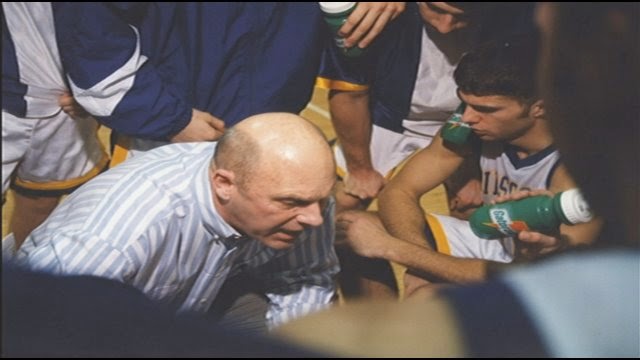1. Don’t play hard: You can have the most talented team in the world, you can have the most intelligent team in the world, but if your team doesn’t play hard, there is no chance that they will be successful over the course of time. You must, before all else, establish and demand that your players play hard. It must be your identity.
2. Don’t play smart: After establishing that your team plays hard, you must then teach your players how to play smart. They must have a high “basketball I.Q.” Your players must learn and buy into the system that you teach and they must learn technique. At Northern, we say, “You can have all the intensity of a mad dog in a meat house, but without technique, you’ll end up with a bullet between the eyes.” Your players must learn to be students of the game. We stress the importance of player notebooks and taking notes.
3. Don’t play together: Finally, after teaching your players to play hard and smart, your players must then learn how to play together. Your team will have a very difficult time if there isn’t unity among the troops.
Key Phrase = “Play Hard, Play Smart, Play Together.”
4. Don’t have a delay game: If your team is fortunate enough to get a lead late in the game, you must have some type of delay game. While that doesn’t mean that you become passive and are afraid to shoot, that does mean that you may have restrictions such as; the only shot is a wide-open lay-up, minimum number of passes before shooting is 5, etc. Teams that don’t have a delay game have the tendency to lose big games.
5. Have no delay game defense: There will be times when you are losing and the opponent is running a delay game to milk the clock. If and when that is the case, you must have a secondary defense that will force the offense to speed up and hopefully take bad shots, so your team can preserve the clock. That might mean you have a press defense, or a trapping zone defense, but whatever the case, you must find ways to speed up the game and give yourself more possessions and opportunities to score.
6. No comeback game: Your team won’t always have a ten-point lead late in the game. There will undoubtedly be times when your team is going to be losing and your players have to know how to speed up the game to get more possessions and thus, more opportunities to come back. First of all, do you have “quick-hitters” in place; set plays that will result in a good look at the basket in a minimal amount of time? Also, do you have substitution patterns in place to best maximize your talent when you are losing? For example, subbing in the appropriate players on a defensive possession that will give you the best chance to stop the other team, and during dead balls, subbing in shooters on offensive possessions if you need to get 3-pointers to get back in the game. In addition, when your team is shooting a free throw, do you have players ready to check in if the player makes the second free throw, which will stop the clock and set up your defense (a timeout without using a timeout)? Being prepared for situations where your team is losing late in the game and having a plan of action ready is vital to a successful program.
7. Don’t simplify the game: There is a lot of power and truth in the saying, “Simplicity is Complicated.” You must keep the game simple for your players. If they have to think too much, they won’t be able to react. A good quote is “the more they think, the slower their feet get.” A great coach teaches his or her players a few simple principles from which the program is known by, and then, that coach lets the players play the game.

